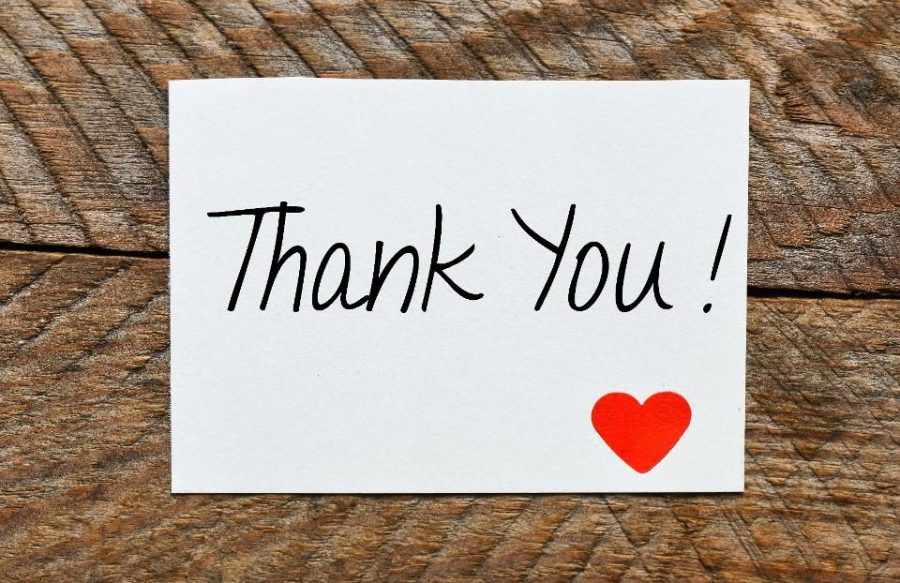The importance of saying “thank you”
As a less-than-proud car-less kid, I’ve spent most of my high school career waiting for rides. Starting sophomore year, when my mock trial practices were bumped up to a five-to-seven timeslot, that meant waiting in the dome alone.
Almost every night, one of the janitors would come in to vacuum, and almost every night, I’d just try to stay out of the way because I didn’t want to be a bother. After hearing far too many stories about people being rude to the school’s janitors this year, however, I decided that it was about high time I thank him.
So, on Wednesday, that’s what I did.
It opened us up to a conversation, in a way. He told me a bit about his life while I leaned against the wheelchair elevator.
His name is John, and he graduated from Hoban in 1967. His life story is pretty eventful: he started his own business with his wife, and managed to retire at age 63. Now, he works at the school to get out of the house (his wife’s idea, not his).
He asked me a lot about my life at Hoban, too. We joked about how I’d registered to vote while everyone else registered for classes and talked about how my generation has to take on the chaos in our shared world.
As we progressed through our conversation, it dawned on me that this never would’ve happened if I hadn’t thanked him. What seemed like a simple action sparked a new understanding of an informal acquaintance.
Surely, many of us grew up in a household where “what do you say?” was almost as common a phrase as “I love you.” The importance of thanks has been ingrained in—but never explained to—us since our youth.
It doesn’t seem necessary most of the time. After all, why thank someone for simply doing what they’re expected to do? This outlook’s caused a major cultural shift in recent years: not only are Gen-X-and-Z kids more likely to replace “You’re welcome” with some variation of “It’s no problem,” they’re less likely to thank people in general. Our view of giving thanks most likely stems from a constant conditioning that saying “thank you” results from necessity, not sentiment.
When we establish that mindset, we nullify any importance the phrase carries. It becomes an empty secular prayer, barren of reason or emotion. Giving thanks should never be a requirement, but we treat it as such. Finding the meaning within the words makes all the difference.
That’s when we open ourselves up to new conversations and make others feel valued. That’s when we meet people like John.
Giving thanks when you mean it is vital to building relationships. Its importance will forever be evident in little moments like that.

Rick Mier. ‘72 • Mar 19, 2020 at 8:59 PM
I guess’Thank You’ has become too automatic…
I hope I meet more ‘Johns’ though!